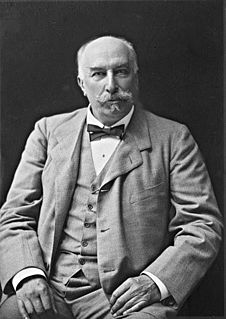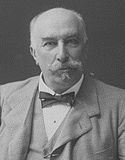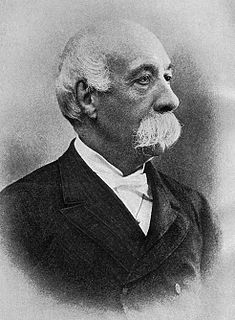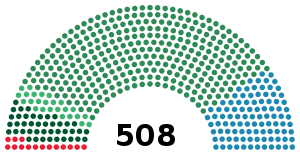
Agostino Depretis was an Italian statesman and politician. He was the Prime Minister of Italy for several times between 1876 and 1887 and leader of the Historical Left parliamentary group for more than a decade. He is the fourth-longest serving Prime Minister in Italian history, after Benito Mussolini, Giovanni Giolitti and Silvio Berlusconi. Depretis is widely considered one of the most powerful and important politicians in Italian history.

Rosario Garibaldi Bosco was an Italian Republican-inspired socialist, politician and writer from Sicily. He was one of the leaders of the Fasci Siciliani, a popular movement of democratic and socialist inspiration in 1891-1894.
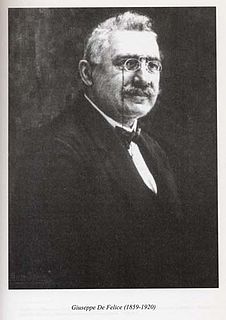
Giuseppe De Felice Giuffrida was an Italian socialist politician and journalist from Sicily. He is considered to be one of the founders of the Fasci Siciliani a popular movement of democratic and socialist inspiration. As the first socialist mayor of Catania in Sicily, from 1902 until 1914, he became the protagonist of a kind of municipal socialism.

Nicola Barbato was a Sicilian medical doctor, socialist and politician. He was one of the national leaders of the Fasci Siciliani a popular movement of democratic and socialist inspiration in 1891-1894, and perhaps might have been the ablest among them, according to the Marxist historian Eric Hobsbawm.

General elections were held in Italy on 23 May 1886, with a second round of voting on 30 May. The "ministerial" left-wing bloc emerged as the largest in Parliament, winning 292 of the 508 seats. As in 1882, the election was held using small multi-member constituencies with between two and five seats.
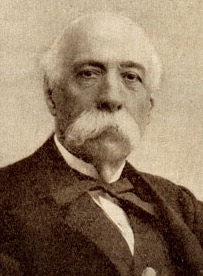
General elections were held in Italy on 23 November 1890, with a second round of voting on 30 November. The "ministerial" left-wing bloc emerged as the largest in Parliament, winning 401 of the 508 seats. As in 1886, the election was held using small multi-member constituencies with between two and five seats.
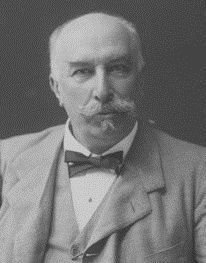
General elections were held in Italy on 6 November 1892, with a second round of voting on 13 November. The "ministerial" left-wing bloc emerged as the largest in Parliament, winning 323 of the 508 seats. The electoral system reverted to the pre-1882 method of using single-member constituencies with second round run-offs.

General elections were held in Italy on 26 May 1895, with a second round of voting on 2 June. The "ministerial" left-wing bloc remained the largest in Parliament, winning 334 of the 508 seats.

General elections were held in Italy on 3 June 1900, with a second round of voting on 10 June. The "ministerial" left-wing bloc remained the largest in Parliament, winning 296 of the 508 seats.
See also: 1892 in Italy, other events of 1893, 1894 in Italy.
See also: 1893 in Italy, other events of 1894, 1895 in Italy.
See also: 1894 in Italy, other events of 1895, 1896 in Italy.
See also: 1895 in Italy, other events of 1896, 1897 in Italy.
See also: 1890 in Italy, other events of 1891, 1892 in Italy.
The Right group, later called Historical Right by historians to distinguish it from the right-wing groups of the 20th century, was an Italian parliamentary group during the second half of the 19th century. Since 1876, the Historical Right constituted the Constitutional opposition toward the left governments. Since 1882, its members were usually labeled as Constitutionals or Liberal-Conservatives, especially during the leadership of Rudinì and Sonnino. Few prime ministers after 1852 were party men; instead they accepted support where they could find it, and even the governments of the Historical Right during the 1860s included leftists.
The Dissident Left, commonly named The Pentarchy like its five leaders, was a progressive and radical parliamentary group active in Italy during the last decades of the 19th century.
See also: 1896 in Italy, other events of 1897, 1898 in Italy.

